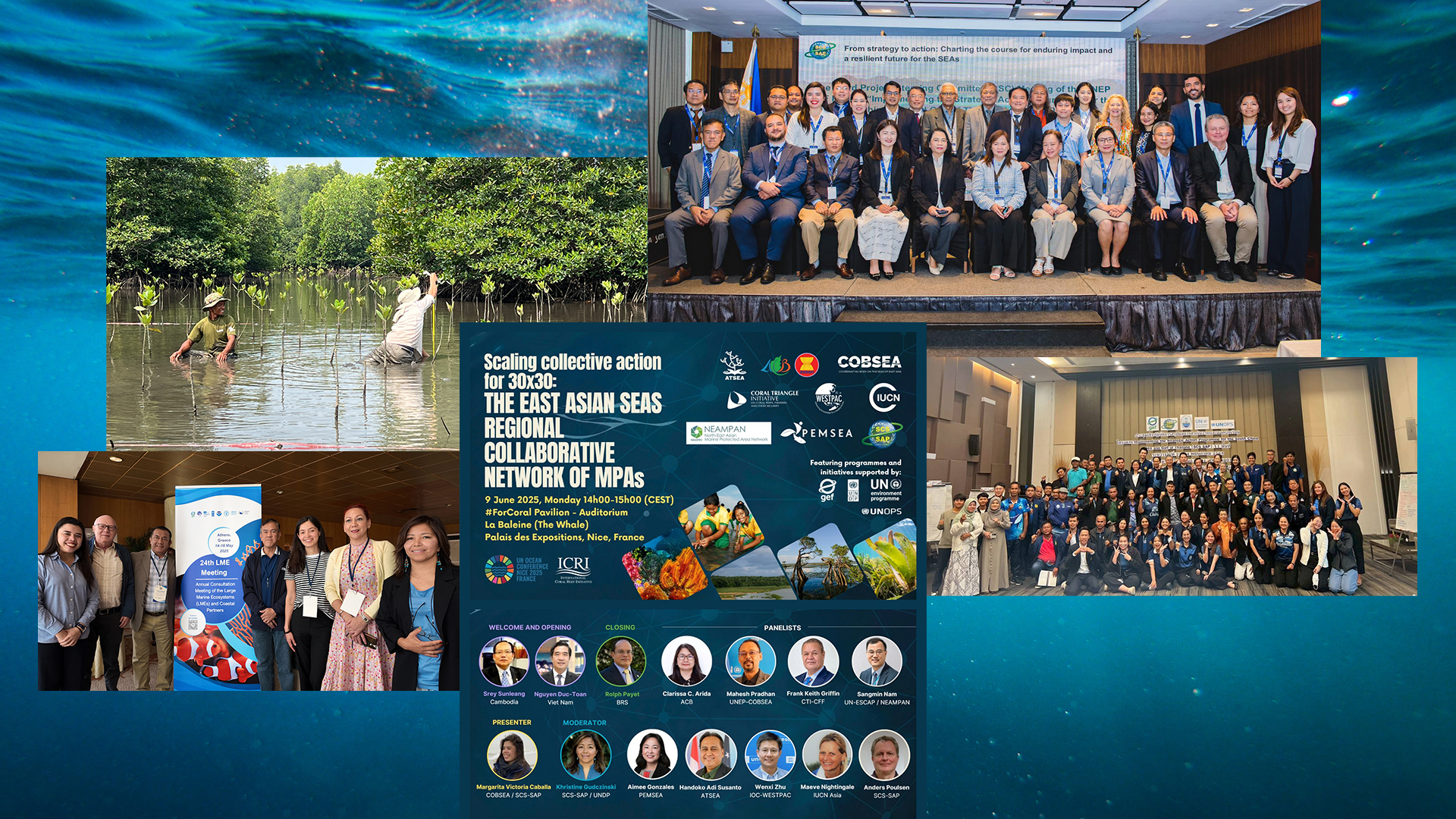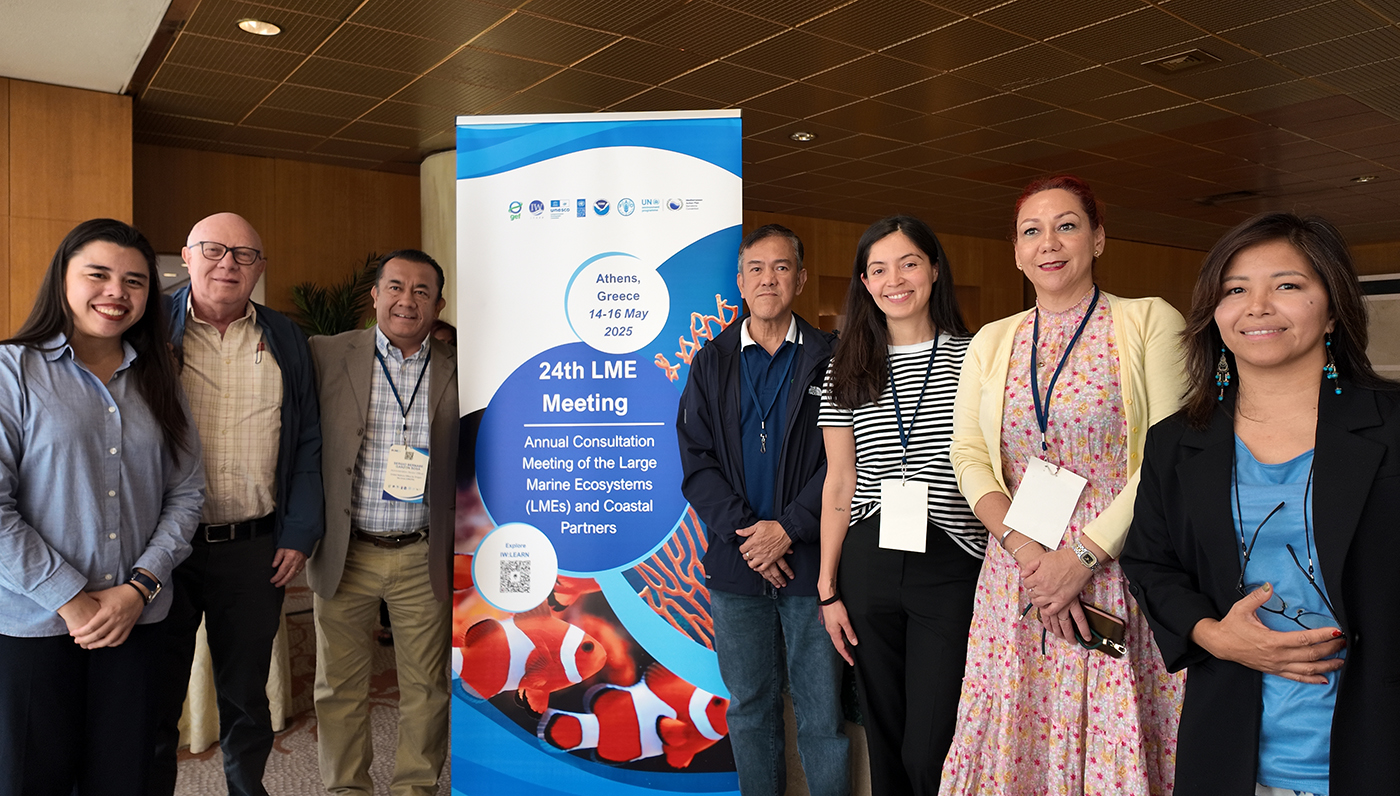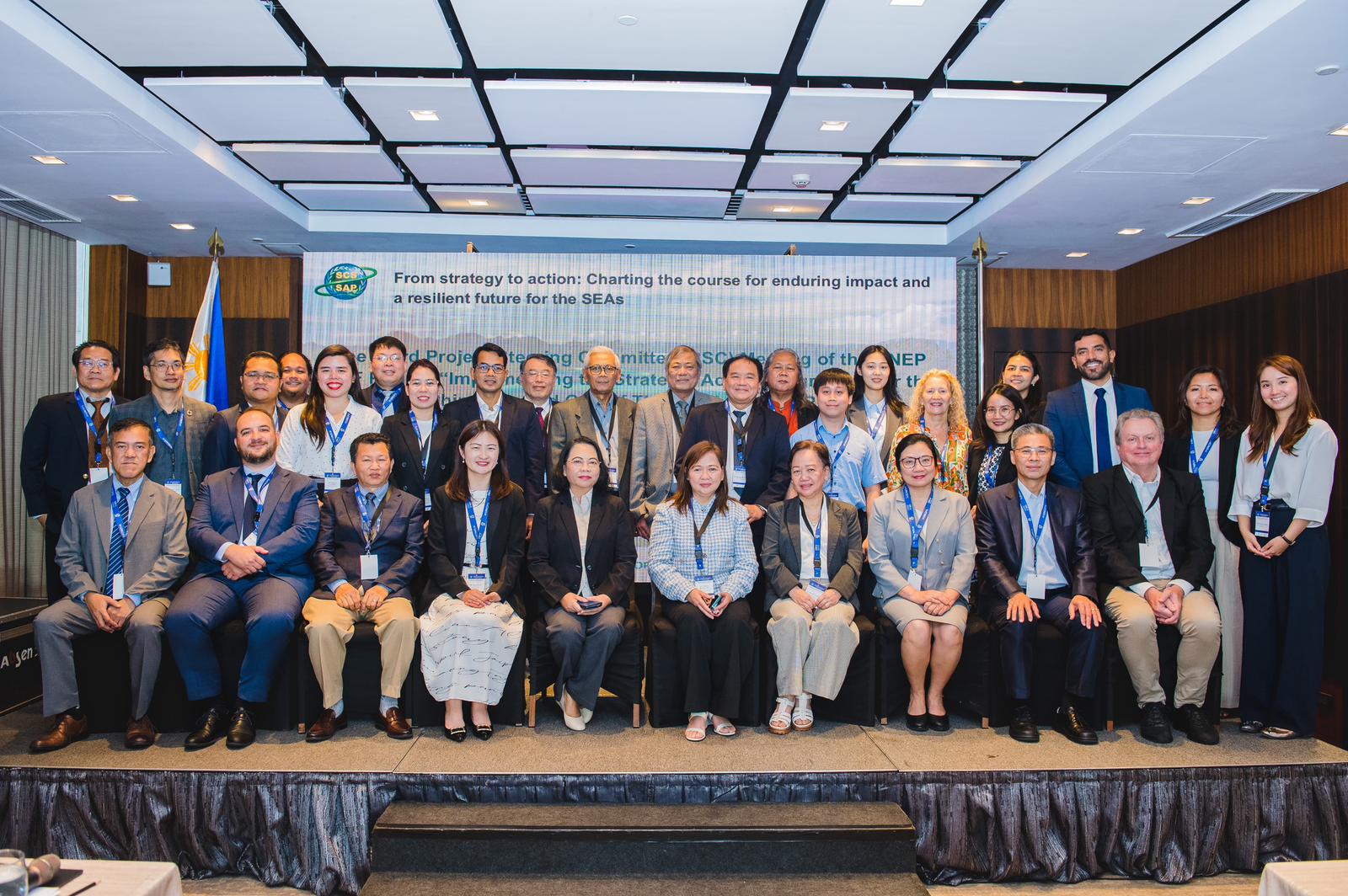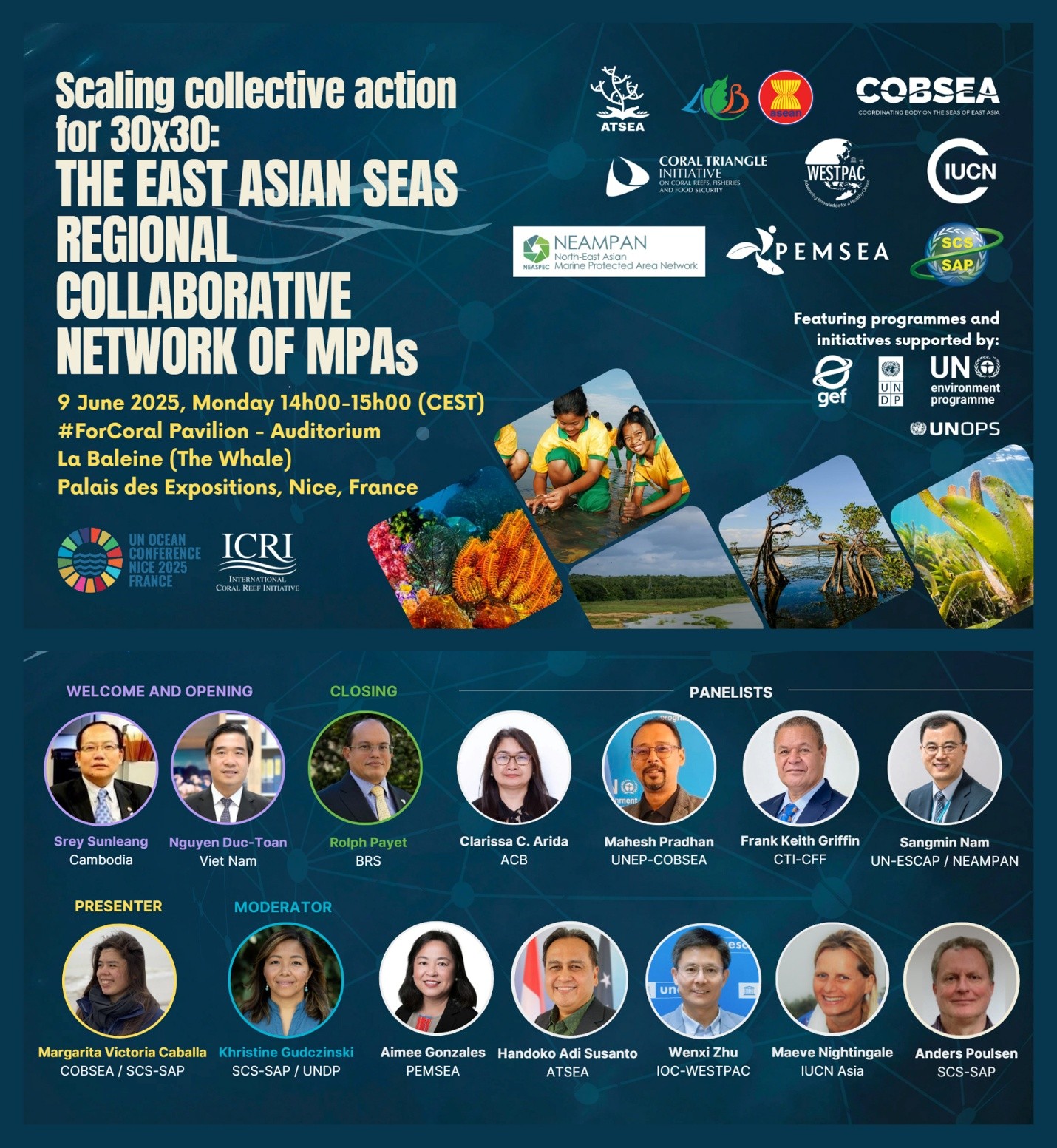 Large Marine Ecosystems (LMEs) are productive ocean areas near continents, crucial for both the environment and coastal economies. Facing threats like pollution, habitat loss, and overexploitation, LMEs require transboundary cooperation. Protecting our global ocean and biodiversity is a top priority for the United Nations, and for UNOPS, especially as the world prepares for the third UN Ocean Conference (UNOC3) in Nice, France, where commitments will be made to #SaveOurOcean. Our regional collaboration under the GEF/UNEP/UNOPS SCS SAP Project directly addresses these challenges in the South China Sea and Gulf of Thailand LMEs through strong regional collaboration and various activities.
Large Marine Ecosystems (LMEs) are productive ocean areas near continents, crucial for both the environment and coastal economies. Facing threats like pollution, habitat loss, and overexploitation, LMEs require transboundary cooperation. Protecting our global ocean and biodiversity is a top priority for the United Nations, and for UNOPS, especially as the world prepares for the third UN Ocean Conference (UNOC3) in Nice, France, where commitments will be made to #SaveOurOcean. Our regional collaboration under the GEF/UNEP/UNOPS SCS SAP Project directly addresses these challenges in the South China Sea and Gulf of Thailand LMEs through strong regional collaboration and various activities.
Showcasing the SCS SAP Project and our regional collaboration at UNOC3
SCS SAP Project Manager Anders Poulsen will join nine organizations in the East Asian Seas region at a Green Zone side event entitled Scaling collective action for 30x30: The East Asian Seas Regional Collaborative Network of MPAs on June 9 (Monday). Co-organized by COBSEA and eight other organizations in the East Asian Seas region, this event responds to Cambodia’s call for greater regional collaboration at the EAS Congress (Xiamen, Nov 2024) and aligns with discussions from stakeholder planning and alignment workshops during the recent 10th Our Ocean Conference (Busan, April 2025). This official UNOC3 Green Zone side event will highlight the Regional MPA Network as a platform for joint action, knowledge exchange, and capacity building to accelerate progress toward SDG14 and 30x30. Regional actors will present approaches for connected, inclusive, and effective marine protection across the EAS region. A similar format and topic but with a different lineup and slightly adjusted discussions will also take place on June 13. For more information about the event: https://www.unep.org/cobsea/events/conference/unoc3-side-event-scaling-collective-action-30x30-east-asian-seas-regional.
Global Stage for Local Impact: SCS SAP at LME24 Meeting
From May 14-16, the SCS SAP Project, alongside COBSEA and the "Implementation of the Strategic Action Program of the Gulf of Mexico Large Marine Ecosystem Project (GOM LME Project)" – another UNOPS-executed, UNEP-led, and GEF-funded LME SAP initiative – participated in the 24th Annual LME Meeting in Athens. Organized by GEF IW:LEARN and co-hosted by UNEP/MAP, this event provided a vital platform to connect with the broader LME community. Titled "Thirty years of LME Collaboration: Advancing Policy Coherence and Integration," this vital platform fostered dialogue, knowledge exchange, and forged new strategic partnerships for sustainable marine management globally.
Watch the key takeaway video from SCSSAP’s Rey Molina and COBSEA’s Marvie Caballa.

Forging Ahead Together: Outcomes of the 3rd PSC Meeting
At the Third Project Steering Committee Meeting in Manila on May 7-9, representatives from the six participating countries—Cambodia, China, Indonesia, Philippines, Thailand, and Vietnam—renewed their steadfast support for the SCS SAP Project and its activities presented throughout the meeting. Some of the highlights of the meeting include:
-
Cooperation Agreements with Cambodia, China, and Thailand were amended and extended to ensure the continuation of critical activities, with Indonesia finally signing the agreement in May 2025. The Vietnam agreement has been finalized and awaiting signing by the government.
-
The Transboundary Diagnostic Analysis (TDA) and Strategic Action Programme (SAP) updating process is actively underway with regional and national teams established, which is vital for guiding future management strategies for the LMEs.
-
The SCS-SAP Small Grants Programme (SEA:GRANTS) was launched in March 2025, providing essential funding (USD 5,000-50,000) for community-based conservation initiatives and research to scale local impact.
-
Furthermore, the Seas of East Asia: Learning Exchange and Resource Network (SEA:LEARN) was initiated as a regional knowledge management platform, aiming to improve data sharing and collaboration, and ensure the long-term sustainability of information on marine management.
-
The Project Steering Committee also approved the work plan, which now includes a new approach centered on five key deliverables: COBSEA integration for sustainability, and three newly branded initiatives – SEA:LEARN, SEA:PUFFER, and SEA:STAR – all supporting the core SAP implementation (more details on these coming soon!). These milestones are crucial for ensuring the continuous implementation of the Strategic Action Programme and fostering resilient regional cooperation for the South China Sea and Gulf of Thailand LMEs beyond the project's lifespan.







